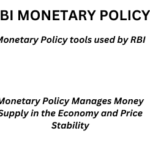Abetment To Suicide: Basics Explained

After TV star Tunisha Sharma allegedly killed herself on the set of a TV show on Saturday, her co-actor, Sheezan Khan, has been booked for abetment to suicide.
LEARNING FROM HOME/ WITHOUT CLASSES/ BASICS
The Indian Penal Code(IPC), 1860 makes abetment of suicide a punishable offence. Section 306 of the (IPC) prescribes either a jail term of up to 10 years or a fine or both .If any person commits suicide, whoever abets the commission of such suicide, shall be punished
Abetment is defined as including instigating, engaging in a conspiracy or assisting in committing the offence. In the case of Ramesh Kumar Vs State of Chhattisgarh it was held that ‘instigation’ may be inferred from a series of acts on the part of accused that led to creation of such circumstances where the deceased had no other option left with him or her than committing suicide.
In the case of Gurbachan Singh v. Satpal Singh it was held that the burden of proving that the offence of abetment of suicide is committed heavily lies on the prosecution. Hence it is necessary to collect clear evidences including circumstantial or direct evidences.
Abetment of suicide is a serious offence that is tried in a Sessions court and is cognizable, non-bailable and non-compoundable.
A cognizable offence is one in which a police officer can make an arrest without a warrant from a court. A non-bailable offence means bail is granted to the accused at the discretion of the court and not as a matter of right.
A non-compoundable offence is one in which the case cannot be withdrawn by the complainant even when the complainant and the accused have reached a compromise.
Section 309 of IPC penalizes the offence
Section 309 of Indian Penal Code says that Attempt to commit suicide. —Whoever attempts to commit suicide and does any act towards the commission of such offence, shall he punished with simple imprisonment for a term which may extend to one year [or with fine, or with both].
Section 309 comes with a mandatory condition that if a person is attempting suicide, this section will only apply if the person is alive and not died because of suicide attempt, mere attempt will have a punishment of simple imprisonment of 1 year or fine or both
Section 107 of Indian Penal Code says that Abetment of a thing.—A person abets the doing of a thing, who—
(First) — Instigates any person to do that thing; or
(Secondly) —Engages with one or more other person or persons in any conspiracy for the doing of that thing, if an act or illegal omission takes place in pursuance of that conspiracy, and in order to the doing of that thing; or
(Thirdly) — Intentionally aids, by any act or illegal omission, the doing of that thing.
Actual commission of the offence is not important to prove anyone guilty. Anyone can also be guilty of mere commission of attempt to offence under section 511 of IPC.
There are some cases where no specific provisions are made regarding an attempt. Section 511 of the IPC deals with such type of cases, which provided that accused shall be punished with ½ of the longest term of imprisonment mentioned for the offence or with fine mentioned for offence or both.
3 essential elements of attempt:
- Preparation of proper mindset for the offence
- Put a step forward towards the commission of that offence
- Fails to commit that offence.
Read: Sheezan Khan booked in Tunisha Sharma death: What is abetment to suicide (indianexpress.com)





0 Comments